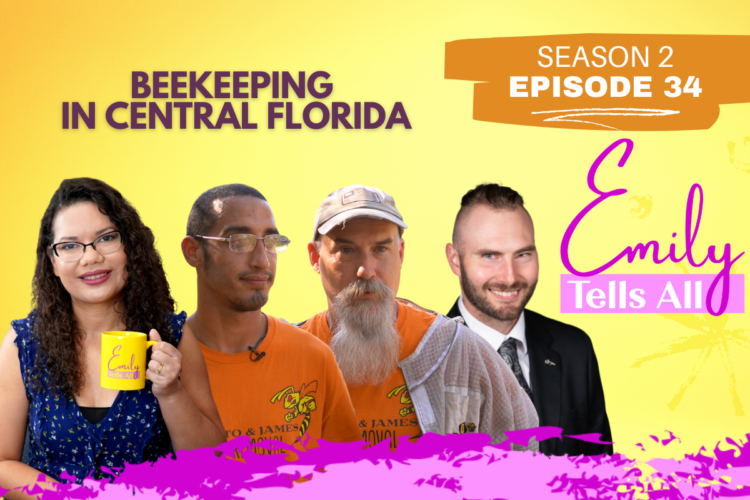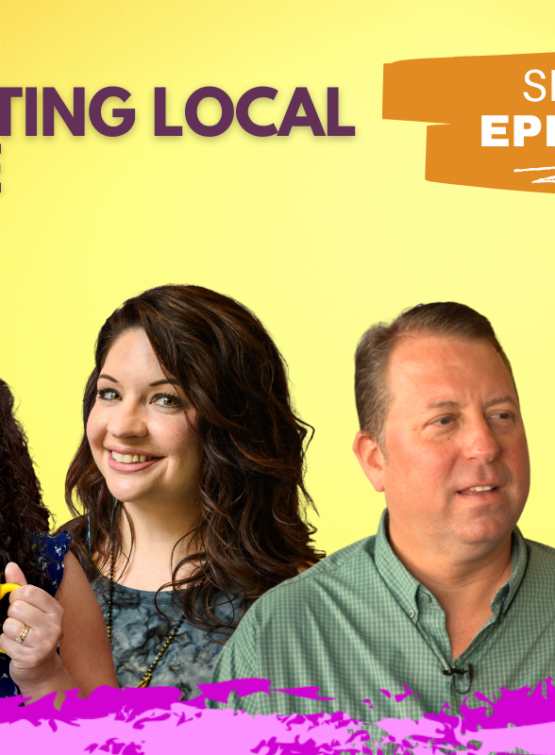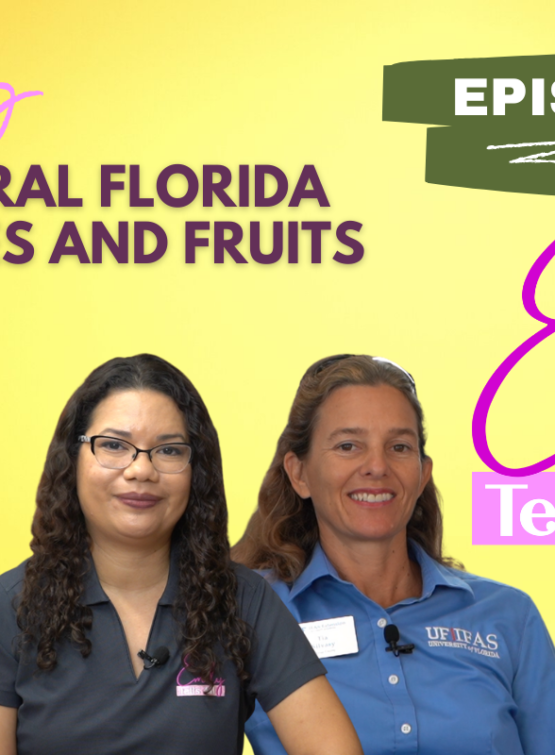AIR DATE AUGUST 25, 2022
Title: Beekeeping in Central Florida
Learn everything you need to know about local beekeeping.
Guests and Locations
Orange and Seminole Counties UF/IFAS Livestock and Natural Resources, Extension Agent I – JK Yarborough
Ben & James Bee Removal and Apiary, LLC, Founders – Benito Cruz & James Caperton
Bees Put a Buzz into Life in Central Florida
Honeybees are responsible for about 80% of the pollination activities that happen each year. We can thank them for about one of every three bites of food we enjoy daily.
A single bee colony can pollinate up to 300 million flowers, which gives us many of the vegetables, nuts, and fruits we enjoy. 70% of our top crops, supplying 90% of human nutrition, are supported by bees.
Benito Cruz and James Caperton, also known as “The Bee Guys,” operate a no-kill apiary in the Orlando area. They created a company that saves bees from destruction when they become problematic in homes and businesses.
“We thought it was important to start the honeybee business because we saw there was a lack of no-kill apiaries in Central Florida,” Benito said. “A lot of the removal companies were just exterminating them, and I was doing gardening, we were realizing that there was a lack of local pollinators nearby.”
Benito and James have two apiaries with millions of bees they care for each year.
Florida Offers the Perfect Climate for Bees and Beekeeping
I also recently spoke with J.K. Yarborough, who serves as an extension agent for Orange County UF/IFAS. He told me many beekeepers come to the area to let their bees spend the winter months here because of the climate.
“In Florida, we average over $20 million worth of value from our honeybee industry,” said Yarborough. “That’s a pretty significant number. We’re the fourth-leading state in honey production, with 5.8 million pounds being produced.”
By having the bees avoid going into stasis because of cold weather, it’s much easier to have colonies survive. Even when temperatures occasionally plummet in Florida, it’s possible to insulate the hive to keep them happy and alive.
That also means Floridians are more likely to experience honeybee intrusions that require some professional assistance to remove.
How to Remove Unwanted Bees from Your Home
Cruz told me that the best option for bee removal is hiring an expert who works with honeybees. If you work with a general exterminator, you might not get the desired results.
“Exterminators are going to exterminate the problem, while a bee removal expert is going to go ahead and re-home the bees – bring them to somewhere the bees will be beneficial.”
Bee experts will also remove the wax in the wall that attracts other pests to your home since it’s essentially free food once the honeybees are gone.
Yarborough says that some aviaries will transport the bees if you contact them directly about the problem. “I know in Orange County, we have a great beekeeper’s association with lots of great beekeepers who sometimes are looking to add to their bee colonies.”
If you encounter bees high in a tree, overly aggressive colonies, or groups living in a wall, Cruz and Yarborough recommend working with a specialist.
Caperton also noted that bees are not typically a danger unless someone has a severe allergy to a sting. “A lot of people are scared of them, but they’re not dangerous,” he said.
You can discover more information about Ben and James’s services at https://www.thefloridabeekeepers.com. For an overview of Yarborough’s work with bees in Central Florida, please visit http://www.ufhoneybee.com.



